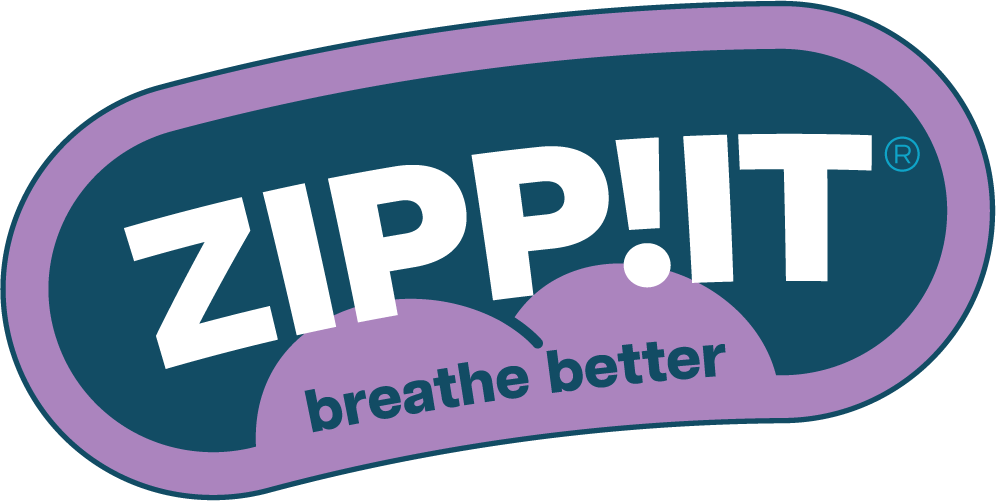
The differences between nasal breathing and mouth breathing and their impact on health
Breathing is an essential life function that usually occurs unconsciously. Although it may seem obvious, the way we breathe, through the nose or mouth, has a significant impact on our health. In this article, we will discuss the physiological differences between nose and mouth breathing, their advantages and disadvantages, the impact on various aspects of health, and how you can train yourself to breathe healthily.

Differences between nose and mouth breathing
Nasal breathing:
Filtering and warming air: The nose contains fine hairs and mucous membranes that filter the air you breathe in. This helps remove dust, pollen, bacteria and other contaminants from the air. In addition, the nose warms and humidifies the air before it reaches the lungs, which protects the airways from irritation and infection.
Nitric Oxide (NO) Production: Nasal breathing stimulates the production of nitric oxide in the nasal passages. This molecule plays an important role in improving oxygen uptake in the lungs and blood, and expanding blood vessels, which can help regulate blood pressure.
Better breathing patterns: Nasal breathing promotes deeper and more efficient breathing. This can help improve oxygenation of the body and balance carbon dioxide.
Mouth breathing:
Less filtration and heating: Mouth breathing lacks the natural filtration and heating that the nose provides. This can lead to increased exposure to pollutants and irritants, which can contribute to respiratory infections and allergies.
Decreased airway hydration: Breathing through the mouth can lead to drying out of the mucous membranes in the mouth and throat, which can cause discomfort and an increased risk of strep throat.
Faster breathing: People who breathe through their mouth often tend to breathe faster and more shallowly, which can lead to hyperventilation and an imbalance of oxygen and carbon dioxide in the blood.
Benefits of Nasal Breathing
Improved oxygen uptake: Nasal breathing allows for more efficient oxygen uptake by the lungs, partly due to the production of nitric oxide. This can lead to better overall health, more energy and better endurance.
Protection against respiratory infections : By filtering air pollutants and pathogens, nasal breathing helps prevent respiratory infections. The air inhaled through the nose is also warmed and humidified, which protects the airways.
Improved sleep quality: Nasal breathing promotes a calmer breathing pattern during sleep, which can help reduce sleep disorders like sleep apnea and snoring. This can lead to deeper, more restorative sleep.
Disadvantages of Mouth Breathing
Increased risk of respiratory infections: Because mouth breathing does not effectively filter the air, there is an increased risk of inhaling contaminants and pathogens, which can lead to respiratory infections and allergies.
Poor oral health: Breathing through your mouth can dry out your mouth, which reduces saliva production. Saliva is essential for neutralizing acids and removing bacteria. A dry mouth can therefore contribute to tooth decay, cavities, and gum disease.
Sleep disorders: People who breathe through their mouths while sleeping are more likely to have sleep disorders such as sleep apnea, and are much more likely to snore. This is because mouth breathing keeps the airways less open, which can lead to respiratory arrest and snoring. In addition, the mouth often falls open during sleep, which further narrows the airways, making snoring worse.
Impact on overall health
The way we breathe can affect several aspects of our health, from oral health to sleep quality and cardiovascular health.
Cardiovascular Health: Nasal breathing supports the production of nitric oxide, which helps regulate blood pressure and improves blood circulation. Chronic mouth breathing can contribute to increased heart rate and blood pressure, which can increase the risk of cardiovascular disease.
Mental Health : Efficient oxygen uptake through nose breathing can contribute to better cognitive functioning and improved mood. In contrast, mouth breathing, especially when it leads to sleep disturbances, can contribute to fatigue, irritability and cognitive problems
Physical Performance : For athletes and people who exercise regularly, nasal breathing can help improve endurance and performance through more efficient oxygen uptake and improved breathing patterns. Mouth breathing can lead to faster fatigue and decreased performance due to inefficient oxygen supply.
What nuances should be taken into account?
It is important to recognize that the choice between nasal and mouth breathing is not always black and white. There are situations in which mouth breathing may be unavoidable or even necessary, such as during intense physical exertion when oxygen demands exceed what nasal breathing can provide. Also, people with certain medical conditions, such as chronic sinusitis or a blocked nose, may rely on mouth breathing temporarily or permanently.
In addition, it is important to recognize that changes in breathing patterns can take time and conscious practice. If someone (structurally) breathes through the mouth at night or during the day, consciously training to breathe through the nose can help. For this, nose or mouth strips can be used that help stimulate nasal breathing.
Conclusion
Both nasal and mouth breathing have unique characteristics that affect different aspects of health. Nasal breathing offers significant benefits, such as better air filtration, improved oxygen uptake, and protection against infection, while mouth breathing can have disadvantages, such as increased risk of respiratory infections, poor oral health, and sleep disturbances. Promoting and encouraging nasal breathing can contribute to better overall health. And with training, with or without the use of nose and/or mouth strips , nasal breathing can be learned and (unnecessary) mouth breathing can be unlearned.

Leave a comment
This site is protected by hCaptcha and the hCaptcha Privacy Policy and Terms of Service apply.